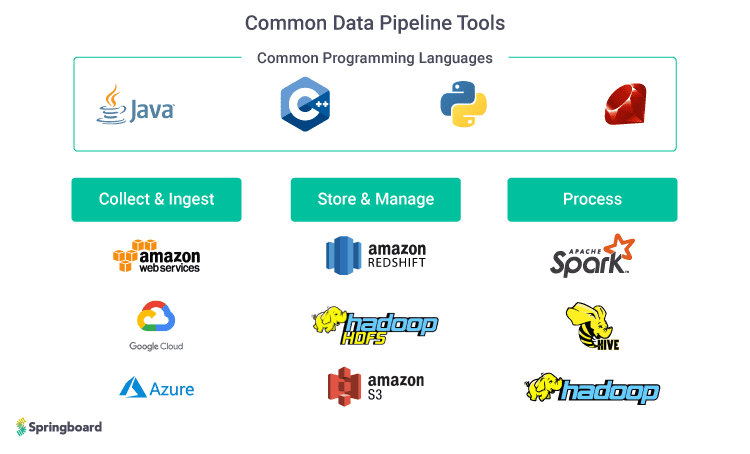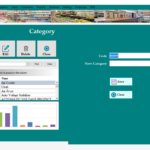Data engineers use data engineering tools.
Data engineering is a little more complicated than some of the other technical positions with degrees and, in general, a set route. Many of us may not have ever heard of data engineers while we were in college. Nonetheless, corporations such as Facebook, Amazon, PayPal, and Walmart all have data engineering positions vacant right now, and many startups are also searching for data engineers.
At a high level, data engineers assist with the movement of data from point A to point B and transform that data into a format that analysts and data scientists can readily use.
To mention a few, data engineers specialize in ETLs (extract, transform, load), automation (often using Python or other programming languages), data modeling/data warehousing, SQL and NoSQL data manipulation, and data visualization.
ETLs and data warehousing are two abilities that are often unfamiliar to many people. Both of these are often explored more in master’s or certificate programs after obtaining a bachelor’s degree — though we anticipate this will or has already changed.
Data engineers employ various technologies, including programming languages, drag-and-drop tools, cloud data warehouses, and data visualization software.
There are more data engineering tools to use than a single individual could ever master in a lifetime.
For example, data engineering tools include SSIS, Azure Data Factory, Tableau, Informatica, Matillion, Fivetran, Snowflake, Redshift, and Databricks, to name a few.
There are various types of data engineering tools that exist.
ETL/ELTs
Airflow and Luigi
SSIS
Fivetran
Informatica
Data warehouses
Snowflake
Redshift
BigQuery
Azure Synapse
Data visualization
Tableau
PowerBI
Looker
Streaming
Kafka
AWS Kinesis
Others
Spark
Presto
Hadoop













